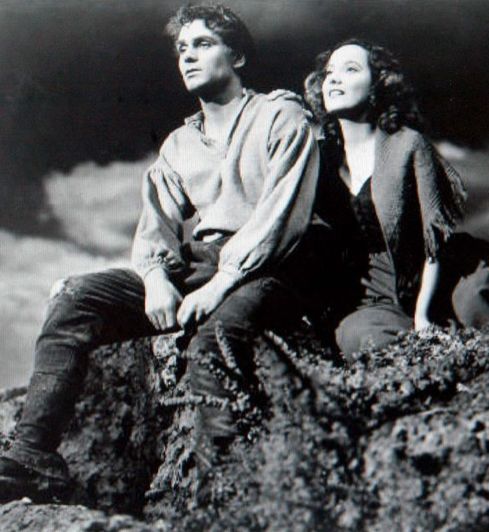
Many
authors treat their main characters as the ideal, the person we all
dream of being. It’s as if the tiniest flaw would turn the reader off,
but at the same time, any character must have the
appearance of
flaws to be at all believable. The pulpier the book, the more likely
the characters are to have these “pseudo-flaws,” but you’ve seen it in
classics, too. Personally, I prefer characters who more resemble folks
we really know, like Billy Pilgrim, who isn’t too smart and is shaped
like a bowling pin, or Shakespeare’s characters, who are so full of
themselves that they can’t see what’s coming. Mallory Ortberg brings us a
series of vignettes that condense the dialogue you’ve read to get to
the heart of this trope.
She wasn’t perfect. She had
two different colored eyes, which is definitely a flaw and not a
magnetic, compelling, unusual form of beauty.
“It makes you so special,” he told her. She shook her head.
“Bad special,” she said.
“Good special,” he said. She didn’t know what to believe.
“I don’t know what to believe,” she told him. “You think the thing I think is bad thing is good thing.”
“That’s good thing,” he said.
***
“I
just want to be normal,” she said, even though she had amazing powers
and a super-family and was mega-gorgeous and better than normal in every
way and the entire book would be terrible if she were normal and she
had no conception of what normal was to begin with.
There are plenty more of these, and
they get more ridiculous as they go on, at The Toast.
 Many
authors treat their main characters as the ideal, the person we all
dream of being. It’s as if the tiniest flaw would turn the reader off,
but at the same time, any character must have the appearance of
flaws to be at all believable. The pulpier the book, the more likely
the characters are to have these “pseudo-flaws,” but you’ve seen it in
classics, too. Personally, I prefer characters who more resemble folks
we really know, like Billy Pilgrim, who isn’t too smart and is shaped
like a bowling pin, or Shakespeare’s characters, who are so full of
themselves that they can’t see what’s coming. Mallory Ortberg brings us a
series of vignettes that condense the dialogue you’ve read to get to
the heart of this trope.
Many
authors treat their main characters as the ideal, the person we all
dream of being. It’s as if the tiniest flaw would turn the reader off,
but at the same time, any character must have the appearance of
flaws to be at all believable. The pulpier the book, the more likely
the characters are to have these “pseudo-flaws,” but you’ve seen it in
classics, too. Personally, I prefer characters who more resemble folks
we really know, like Billy Pilgrim, who isn’t too smart and is shaped
like a bowling pin, or Shakespeare’s characters, who are so full of
themselves that they can’t see what’s coming. Mallory Ortberg brings us a
series of vignettes that condense the dialogue you’ve read to get to
the heart of this trope.
No comments:
Post a Comment